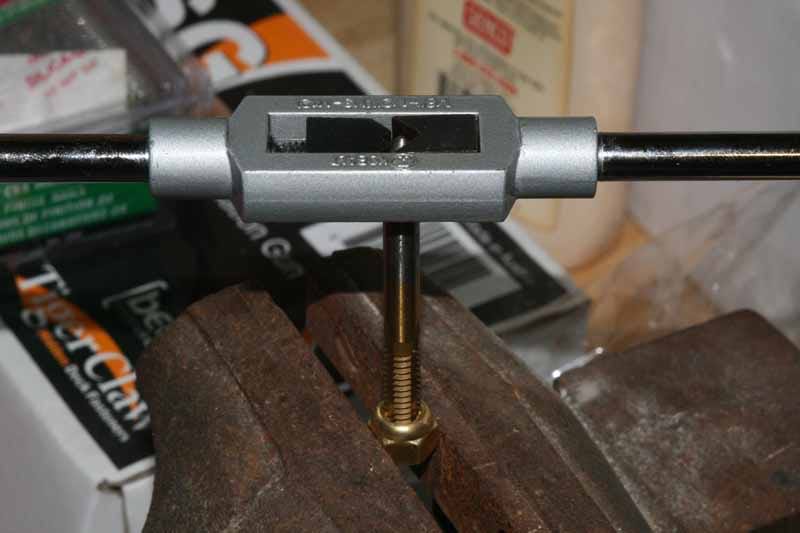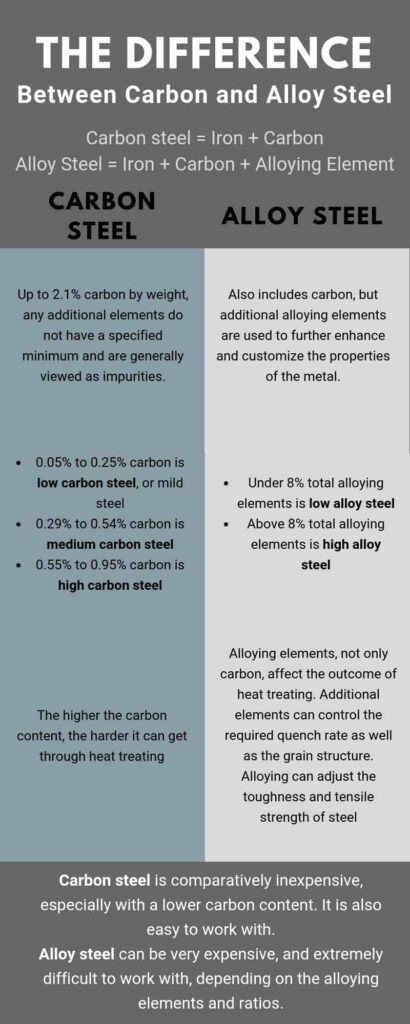Table of Contents
When it comes to construction and manufacturing, galvanneal steel is a popular choice that offers a range of impressive properties and applications. From its exceptional corrosion resistance to its superior formability, galvanneal steel has become a go-to material in various industries. In this article, we will delve into the world of galvanneal steel, exploring its properties and uncovering its many applications.
Galvanneal steel is a type of coated steel that is created by combining the processes of galvanizing and annealing. The result is a material that boasts the best of both worlds – the corrosion resistance of galvanized steel and the enhanced paintability of annealed steel. With its zinc-iron alloy coating, galvanneal steel offers excellent protection against rust and corrosion, making it an ideal choice for outdoor applications and harsh environments. Additionally, its unique coating provides a smooth and uniform surface, perfect for achieving a high-quality finish when painting or powder coating.
The versatility of galvanneal steel is truly remarkable, as it finds its place in a wide range of industries. From automotive manufacturing to construction, galvanneal steel is used in the production of various components, such as body panels, doors, roofs, and even structural elements. Its formability allows for complex shapes and designs, while its durability ensures long-lasting performance. Whether it’s for architectural purposes or industrial applications, galvanneal steel continues to prove its worth as a reliable and efficient material. So, let’s dive deeper into the properties and applications of galvanneal steel to discover why it’s the preferred choice for many projects.
Galvanneal Steel: Properties and Applications
Galvanneal steel is a type of coated steel that offers excellent corrosion resistance and enhanced formability. It is created by coating hot-dip galvanized steel with a layer of iron-zinc alloy. This process not only provides a protective barrier against rust but also creates a matte gray finish that is ideal for painting. Galvanneal steel is widely used in various industries due to its unique properties and versatility. In this article, we will explore the properties and applications of galvanneal steel in detail.
Properties of Galvanneal Steel
Galvanneal steel possesses several key properties that make it suitable for a wide range of applications. Firstly, its corrosion resistance is highly beneficial, as it helps to protect the underlying steel from rust and degradation. The iron-zinc alloy coating acts as a barrier, preventing moisture and corrosive elements from reaching the surface of the steel. This makes galvanneal steel an excellent choice for outdoor applications or environments with high humidity or exposure to chemicals.
Another important property of galvanneal steel is its enhanced formability. The iron-zinc alloy coating provides a lubricating effect, making it easier to bend and shape the steel without cracking or breaking. This is particularly advantageous in the manufacturing industry, where complex shapes and designs are often required. Galvanneal steel can be easily formed into intricate components, such as automotive parts, appliances, and HVAC systems.
Furthermore, the matte gray finish of galvanneal steel is highly desirable for applications that require painting or powder coating. The surface provides excellent adhesion for paint, ensuring a durable and long-lasting finish. Additionally, the uniform appearance of the coating enhances the aesthetic appeal of finished products. This makes galvanneal steel a popular choice for architectural applications, such as roofing, siding, and decorative panels.
Corrosion Resistance
The corrosion resistance of galvanneal steel is one of its most important properties. The iron-zinc alloy coating acts as a sacrificial layer, corroding preferentially to protect the underlying steel. This sacrificial protection mechanism ensures that the steel remains intact and unaffected by corrosion. Galvanneal steel is therefore highly suitable for applications where exposure to moisture, chemicals, or harsh environments is expected.
In addition to its corrosion resistance, galvanneal steel also offers excellent adhesion for paint. The matte gray finish provides a consistent and uniform surface for paint to adhere to, resulting in a smooth and durable finish. This is particularly advantageous in industries such as automotive manufacturing, where painted components are subjected to harsh conditions, including UV exposure, temperature fluctuations, and mechanical stress.
Formability
Galvanneal steel exhibits enhanced formability compared to traditional galvanized steel. The iron-zinc alloy coating provides a lubricating effect, reducing friction during the bending and forming process. This allows manufacturers to create complex shapes and designs without compromising the integrity of the steel. Galvanneal steel is commonly used in the production of automotive parts, electrical enclosures, and appliances, where intricate shapes and precise dimensions are required.
The enhanced formability of galvanneal steel also contributes to its cost-effectiveness. The ability to create intricate components without the need for additional processing or fabrication reduces production time and costs. Manufacturers can achieve the desired shapes and dimensions more efficiently, resulting in improved productivity and competitiveness in the market.
Applications of Galvanneal Steel
Galvanneal steel finds extensive use in a variety of industries due to its unique combination of properties. Its corrosion resistance and enhanced formability make it suitable for numerous applications in automotive, construction, electrical, and appliance industries. Some common applications of galvanneal steel include:
– Automotive body panels: Galvanneal steel is used for manufacturing car body panels, including doors, hoods, and fenders. Its corrosion resistance and formability make it an ideal choice for these critical components that are exposed to environmental elements.
– Electrical enclosures: Galvanneal steel is commonly employed in the production of electrical enclosures, such as control panels and junction boxes. Its corrosion resistance and ability to be easily formed into specific shapes make it an excellent choice for protecting electrical components.
– HVAC systems: Galvanneal steel is utilized in the manufacturing of HVAC systems, including air ducts, vents, and heat exchangers. Its formability allows for the creation of intricate designs, while its corrosion resistance ensures durability and longevity.
– Appliances: Galvanneal steel is often used in the production of household appliances, such as refrigerators, washing machines, and ovens. Its corrosion resistance and ability to be painted provide a visually appealing and long-lasting finish.
– Construction: Galvanneal steel is widely employed in the construction industry for applications such as roofing, siding, and structural components. Its corrosion resistance and formability make it suitable for withstanding the harsh conditions of outdoor environments.
In summary, galvanneal steel offers a unique combination of properties that make it highly desirable for various applications. Its corrosion resistance, enhanced formability, and matte gray finish make it an excellent choice for industries such as automotive, construction, electrical, and appliance manufacturing. Whether it’s protecting against rust, creating complex shapes, or providing a durable painted finish, galvanneal steel proves to be a versatile and reliable material.
Key Takeaways: Galvanneal Steel: Properties and Applications
- Galvanneal steel is a type of steel that has been coated with zinc and then annealed to improve its properties.
- It has excellent corrosion resistance, making it ideal for outdoor applications such as automotive parts, roofing, and siding.
- Galvanneal steel also has good formability, allowing it to be easily shaped and molded into various products.
- It offers superior paint adhesion, ensuring that coatings adhere well to the surface and provide long-lasting protection.
- Common uses of galvanneal steel include manufacturing of appliances, HVAC systems, and electrical enclosures.
Frequently Asked Questions
What is Galvanneal steel and what are its properties?
Galvanneal steel is a type of steel that has been coated with a layer of zinc-iron alloy during the galvanizing process. This coating provides the steel with enhanced corrosion resistance and improved paint adhesion. Galvanneal steel has a matte gray appearance and a unique spangled texture.
One of the key properties of Galvanneal steel is its excellent weldability. It can be easily welded without any pre-treatment, making it a popular choice for fabrication processes. Additionally, Galvanneal steel offers good formability, allowing it to be shaped and bent into various forms without cracking or breaking.
What are the applications of Galvanneal steel?
Galvanneal steel finds extensive use in a wide range of industries and applications. It is commonly used in the automotive industry for the manufacturing of body panels, chassis components, and structural parts. The corrosion resistance and paint adhesion properties of Galvanneal steel make it ideal for these applications.
Furthermore, Galvanneal steel is also utilized in the construction industry for roofing, siding, and structural support. Its durability and resistance to weathering make it suitable for exterior applications. Additionally, Galvanneal steel is used in appliances, HVAC systems, and electrical enclosures due to its superior corrosion resistance.
How does Galvanneal steel differ from galvanized steel?
While both Galvanneal steel and galvanized steel offer corrosion resistance, they differ in terms of their coating and appearance. Galvanized steel is coated with a layer of pure zinc, whereas Galvanneal steel is coated with a zinc-iron alloy. This alloy coating provides Galvanneal steel with enhanced paint adhesion and a matte gray finish.
Another difference lies in the manufacturing process. Galvanized steel is produced by immersing the steel in a bath of molten zinc, while Galvanneal steel is produced by first galvanizing the steel and then heat-treating it to form the zinc-iron alloy coating.
What are the advantages of using Galvanneal steel?
There are several advantages of using Galvanneal steel in various applications. Firstly, its enhanced corrosion resistance ensures that the steel remains protected in harsh environments, increasing its lifespan. Additionally, the zinc-iron alloy coating provides excellent paint adhesion, resulting in a more durable and long-lasting finish.
Furthermore, Galvanneal steel’s excellent weldability and formability make it a preferred choice for fabrication processes. It can be easily welded and formed into complex shapes without compromising its structural integrity. Moreover, Galvanneal steel’s matte gray appearance adds a unique aesthetic appeal to finished products.
How can Galvanneal steel be maintained?
To maintain the quality and appearance of Galvanneal steel, regular cleaning and maintenance are recommended. It is important to remove any dirt, debris, or contaminants from the surface of the steel using a mild detergent and water. Avoid using abrasive cleaners or tools that may damage the zinc-iron alloy coating.
If the Galvanneal steel surface gets scratched or damaged, touch-up paint can be applied to prevent further corrosion. It is advisable to use paint specifically designed for use on Galvanneal steel. Regular inspections should be conducted to identify any signs of corrosion or paint deterioration, allowing for timely repairs or recoating if necessary.
What is Galvanizing
Final Summary: Unleashing the Power of Galvanneal Steel
When it comes to galvanneal steel, it’s clear that this material packs a punch in terms of its properties and applications. With its unique combination of corrosion resistance, formability, and paint adhesion, galvanneal steel has become a go-to choice for a wide range of industries. Whether it’s in automotive manufacturing, construction, or even household appliances, galvanneal steel offers exceptional performance and durability.
One of the standout features of galvanneal steel is its enhanced paint adhesion. The iron-zinc alloy coating not only protects the underlying steel from corrosion but also provides an excellent surface for painting. This means that manufacturers can achieve a seamless and long-lasting finish, making galvanneal steel an ideal choice for products that require a pristine appearance.
Furthermore, the formability of galvanneal steel allows for intricate designs and complex shapes to be easily achieved. This versatility opens up a world of possibilities for designers and engineers, enabling them to create innovative products that meet the demands of modern consumers.
In conclusion, galvanneal steel is a powerhouse material that offers a winning combination of properties and applications. From its corrosion resistance to its paint adhesion and formability, galvanneal steel ticks all the boxes. So, whether you’re in the automotive, construction, or any other industry that requires high-performance steel, galvanneal steel is the answer. Embrace the power of galvanneal steel and unlock a world of possibilities for your next project.
Request a quote today!
[contact-form-7 id="1578" title="Contact form"]
Please compress the file into a ZIP or RAR file before uploading. Alternatively, send through your RFQ by email.
enquires@unitymanufacture.com





